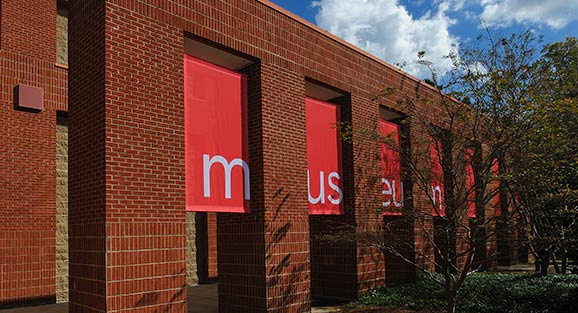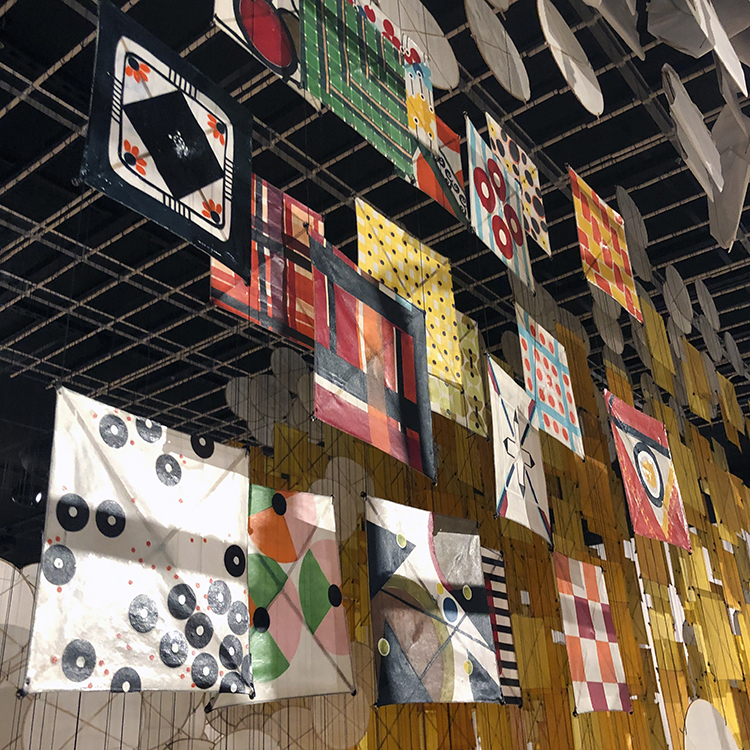
Museum and Historic Houses to reopen to the public; new programming and exhibits offered
Visitors to campus can roam the grounds of the University of Mississippi Museum and Historic Houses again, including Rowan Oak, the home of Nobel- and Pulitzer Prize-winning author William Faulkner, beginning Tuesday, August 17.
The museum has been open to university faculty, staff, and students by appointment only since fall 2020, but it is reopening to all comers without an appointment, and guests can roam the grounds, much like one could before the pandemic. The museum follows the same health and safety protocols as the university: visitors must wear a mask indoors and hand sanitizer is available throughout the museum.
New exhibits and programming will be available when the museum reopens.
The museum staff is looking forward to hosting visitors and new attractions, said Robert Saarnio, director of the University Museum and Historic Houses. Saarnio said he hopes museum supporters also will take advantage of digital resources to augment their experience.
“The University Museum and William Faulkner’s Rowan Oak are exceptionally happy to anticipate our full return to all-visitors’ access to our exhibitions and programs, commencing August 17,” he said. “We are museums founded on values of service to community and campus, and free-admission access to all.
“Please follow our developments by opting-in to our e-newsletter at our website for advance word of all of our exciting events and programs.”
Museum hours are 10 am to 4 pm Tuesdays through Saturdays. Rowan Oak is open from 10 am to 4 pm Tuesdays through Saturdays and 1-4 pm Sundays.
Exhibits at the museum include “Dreams and Visions,” featuring works by acclaimed Oxford artist Theora Hamblett, and a display examining the tradition of African American quilt-making.

Jacob Hashimoto‘s work is part of a new exhibit called “The Other Sun,” which opens Tuesday at both the museum and Rowan Oak.
The American artist creates small, intricate drawings, but also massive hovering forms consisting of thousands of kite-like discs. Much of his work playfully balances the dichotomies he sees in landscapes and virtual worlds. The exhibit will be on display through August 2022.
A reception and artist lecture are set for 6 pm September 28 at the museum.
Programming for all ages is planned for this fall at the museum, said Andrea Drummond, membership, events, and communications coordinator.
“We have been working hard behind the scenes,” Drummond said. “We are excited to have everyone visit once again. We are also returning to in-person programming and are thrilled to be able to host classes and tours for all ages in a safe way.”
Among the returning programs for younger audiences are Mini Masters, a drop-in program for kids ages 2 through 5, accompanied by a guardian; Art Zone Pop Ups, art classes for kids in grades K-4; and Milkshake Mashup, art-making for students in grades 5-8.
The museum is also reinstating its First Friday Free Sketch Day, which is open for all ages to visit and sketch in the galleries. Tours are resuming for university groups and community partners.
The museum’s collection of Greek and Roman antiquities contains more than 2,000 sculptures, terra cotta and bronze artworks, decorated pottery and coins, and a variety of artifacts that date from 1500 BC to AD 300. The majority of this internationally renowned collection was donated to the university by archaeologist and professor David M. Robinson in 1958.
The Millington-Barnard Collection of Scientific Instruments originated with the university in the 19th century. About 500 instruments that were used to teach Ole Miss students from 1848 to 1861 are housed in the museum.
The museum also has a collection of Southern folk art from the late 19th to 20th centuries by artists using a range of nontraditional materials. The permanent collection contains work by Sulton Rogers, James “Son” Thomas, and Pecolia Warner, among many others.
The Seymour Lawrence Collection of American Art includes a Georgia O’Keeffe painting, as well as work from other 20th century artists including Arthur Dove and Marsden Hartley.
For more information about the Museum and Historic Houses, visit http://museum.olemiss.edu. For more information about Rowan Oak, go to https://www.rowanoak.com/.
By Michael Newsom



